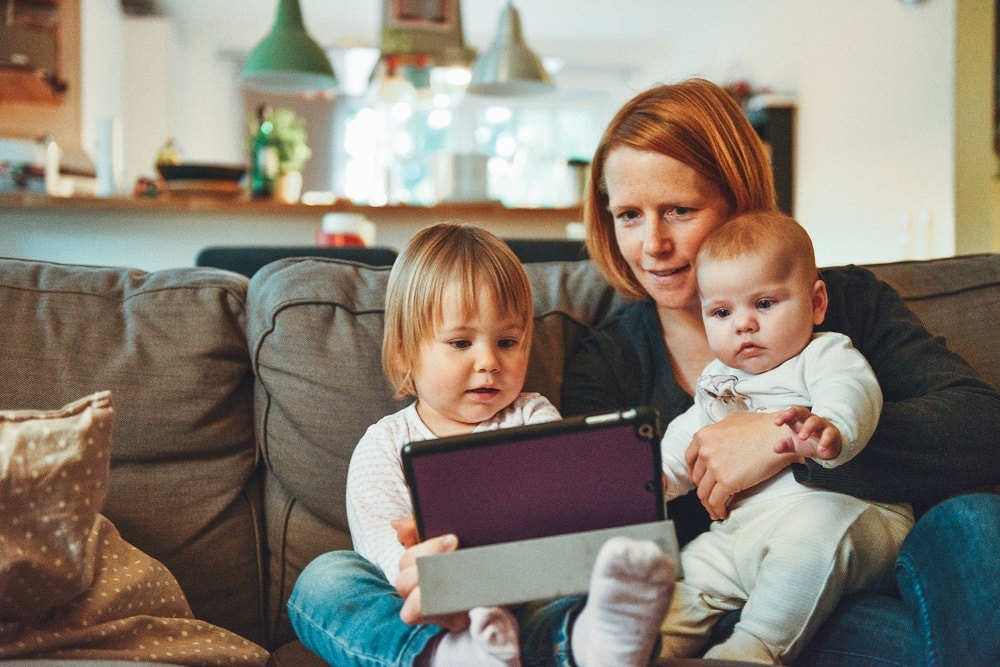Even very young children spend lots of time online. These top tips have been written for you (parents and carers) by the UK Safer Internet Centre to share, and talk about, with your children. It’s never too early to talk about life online!
Parental Controls
Making sure your child can’t access things that are not for young eyes is one of the best ways to protect your child. These controls can be applied to your home computers and laptops, tablets and mobile phones and will stop your child being able to access adult and worrying content. it will also stop them from being able to open links to this type of material sent to them by their friends or other adults. The NSPCC has some excellent information on how to set up these controls on your devices.
Top tips for 3-7 Year olds
Enjoying all the amazing things there are to do online!
Talk with your child about the games they enjoy playing and the videos they love to watch. Doing these things together is a great way to explore how amazing the internet can be.
Always being kind and respectful to others online.
Explain to your child that being kind and respectful helps make the internet fun and safe for everyone. Yes, even their little brother if he’s beating them on their favourite game! This is something you can show them in your own words and actions online too.
Making safe choices.
Your child will have to make lots of choices when they’re using technology and the internet, so talk regularly about what they can do to keep themselves safe. This might be keeping personal information like their name or school private and never agreeing to meet up with someone they only know online. The earlier you start these conversations the better equipped your child will be as they grow older.
Remembering that it’s okay to say no to people online.
Online friendships can be difficult to manage, but a simple step to help keep your child safe is making sure they know that they are in control. Discuss how they might respond if someone says or does something that makes them feel uncomfortable. Remind them that they never have to do something just because an online friend has told them to and that they can come to you for help and advice.
Always telling an adult if anyone or anything online makes you worried, upset or uncomfortable.
The most important thing you can do to support your child online is let them know you’re there to support them. Talk regularly about all the points above, and more! Make sure they know that if anything online makes them worried, upset or uncomfortable, then they can come to you for help – and a hug!
Finding out more about the films and games older children may be watching and playing
It can be hard to know the full content of what your child is watching, especially new series on streaming platforms. Common Sense Media can help you find out the content of films and tv series , books and console games. Which can help you see what your child is exposed to. Taming Gaming also has a fantastic database where you can search video games and see their content allowing you to make informed choices on the games your child is using.
Online / Cyber Bullying
Unfortunately, up to 12% of older children can experience bullying online. This may come via social media apps such as Snapchat, What’s App and Facebook or via console games.
Have an open conversation
Listen, and offer support and encouragement. If your child is the victim of cyberbullying, remind them that this is not their fault and that no one deserves to be treated in this way. Some young people think that if they are the target of online bullying, they must have done something wrong. It is also important to encourage your child to save the evidence. They can do this by taking a screenshot of what has happened or by keeping the messages they have received.
Don’t reply
Most of the time the person doing the bullying is looking for a reaction when they are being mean online. Tell your child not to reply, instead they should tell a trusted adult what has happened. Reassure them that even if they are also at fault, they should come and talk to you or a trusted adult. You can then work out the best way to resolve the situation together.
Don’t deny access to technology
Although it can be very tempting to remove a device from a young person if they are being bullied, having their device taken away may prevent them from speaking to you about worrying issues in the future.
Discuss next steps
Ask your child what they want you to do next. This might involve speaking to school to get support and advice, blocking the user or profile or reporting the behaviour to the site or service it is on.
Useful Links
- Advice for Parents & Carers – Phones
- Advice for Parents & Carers – Laptops
- Advice for Parents & Carers – Smart Speakers
- Advice for Parents & Carers – Games Consoles
- Advice for Parents & Carers – Tablets
- Advice for Parents & Carers – Smart TV’s
- Advice for Parents & Carers – Social Media Guide
- Staying Safe online – Social Media
- Early Years Alliance Top Tips for Keeping your child safe online
- Top Tips for Under 11‘s





